Rita from child bride to an entrepreneur
Married at 14 and forced out of school, Rita now runs her own beauty parlour and mentors girls to earn and live independently.
The Youth Citizen Score Card helps young people check if local services like schools, health posts, and water taps are working well. They talk to leaders to make these services better for everyone.
Young people, including many girls, meet with teachers, health workers, and local leaders to share what they find. They work together to fix problems like broken toilets, no drinking water, or missing medicines in the health post.
This way, young people can help their communities and make sure everyone gets the services they need.
For the first time in Nepal, young people are using the Young Citizen Score Card (YCSC) to help improve their communities. This tool lets them identify problems in local services and work together with leaders to find solutions.
They check services like schools, health posts, and water taps to see what needs to change. Many girls are leading this work, speaking with teachers and local leaders to ensure everyone in the community gets the support they need.
In Sindhuli, Plan International’s Strengthening Local Accountability through Youth Engagement (SLAS) project is helping young people, especially girls, to take the lead in improving health and education services. They look at issues like the need for clean toilets, menstrual hygiene support, and friendly health services for adolescents, and then share their findings with local leaders to ask for action.
SLAS also builds young people’s skills in digital advocacy, allowing them to create videos and social media content to raise awareness about the changes they want to see. This project shows that when young people are given the right tools and support, they can lead positive changes that help make their communities fairer, safer, and better for everyone.
“Through SLAS, I learned to protect myself and others. Now, I feel confident to speak up for my rights and guide my community,” says Tulsa.
Tulsa, a young volunteer from Sindhuli, once got caught in an online scam due to misinformation, losing money meant for her studies. Through SLAS, she received training on digital literacy and safeguarding, which not only rebuilt her confidence but also inspired her to educate others about online safety. Today, she facilitates community dialogues on misinformation and digital safety and uses her own story to raise awareness among peers, ensuring others don’t face the same challenges.
“Through SLAS, I learned to protect myself and others. Now, I feel confident to speak up for my rights and guide my community.”
Tulsa, young volunteer

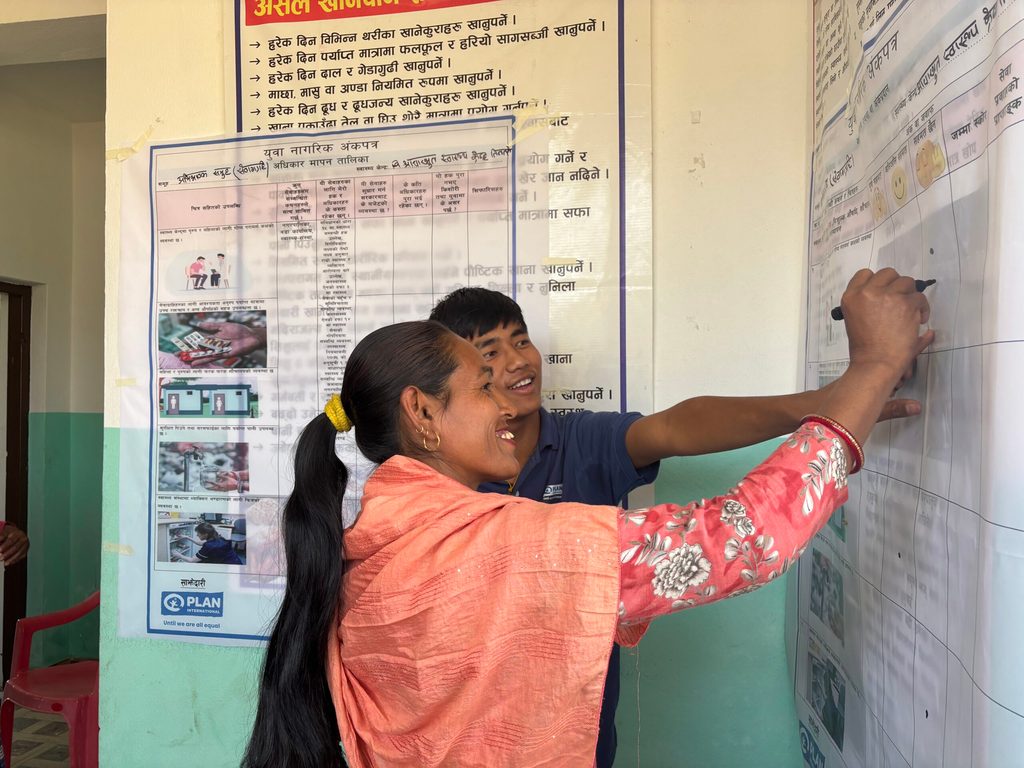
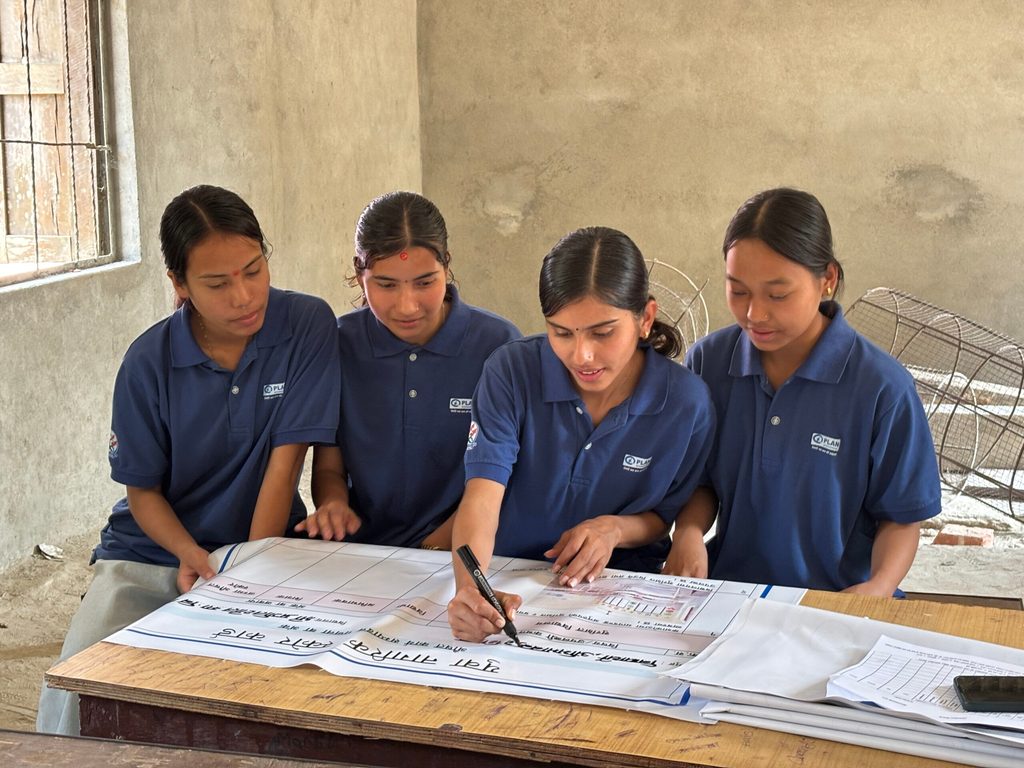
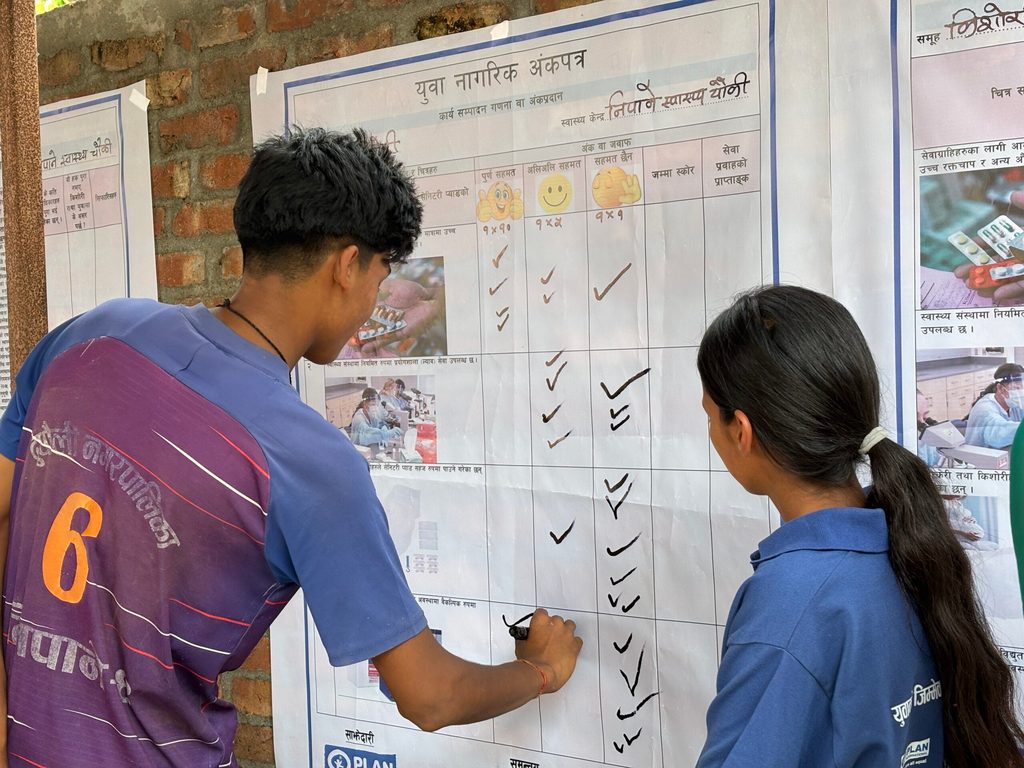
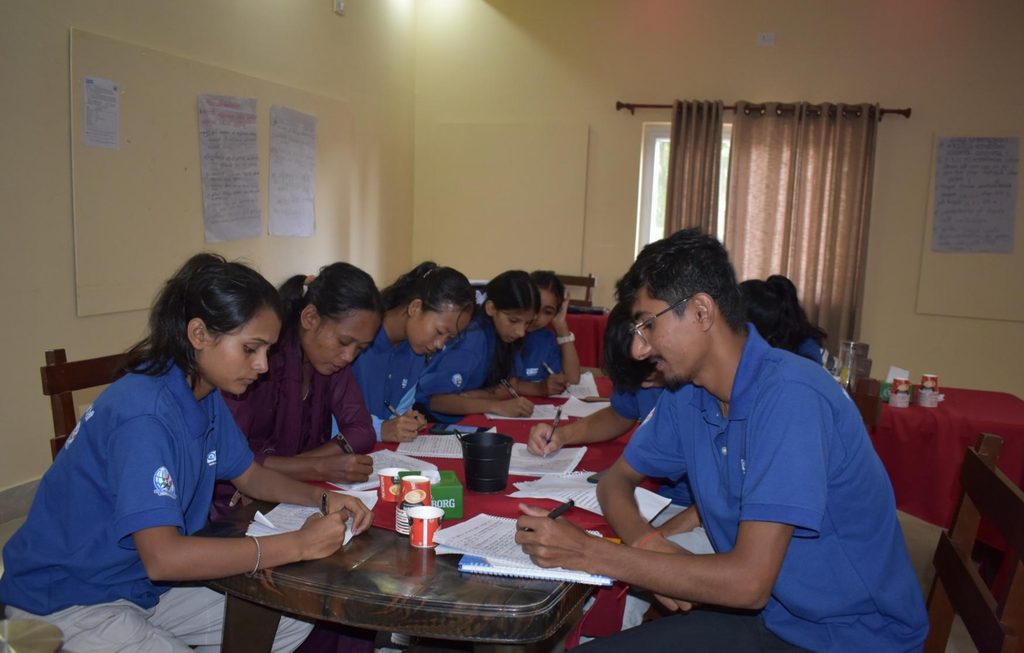
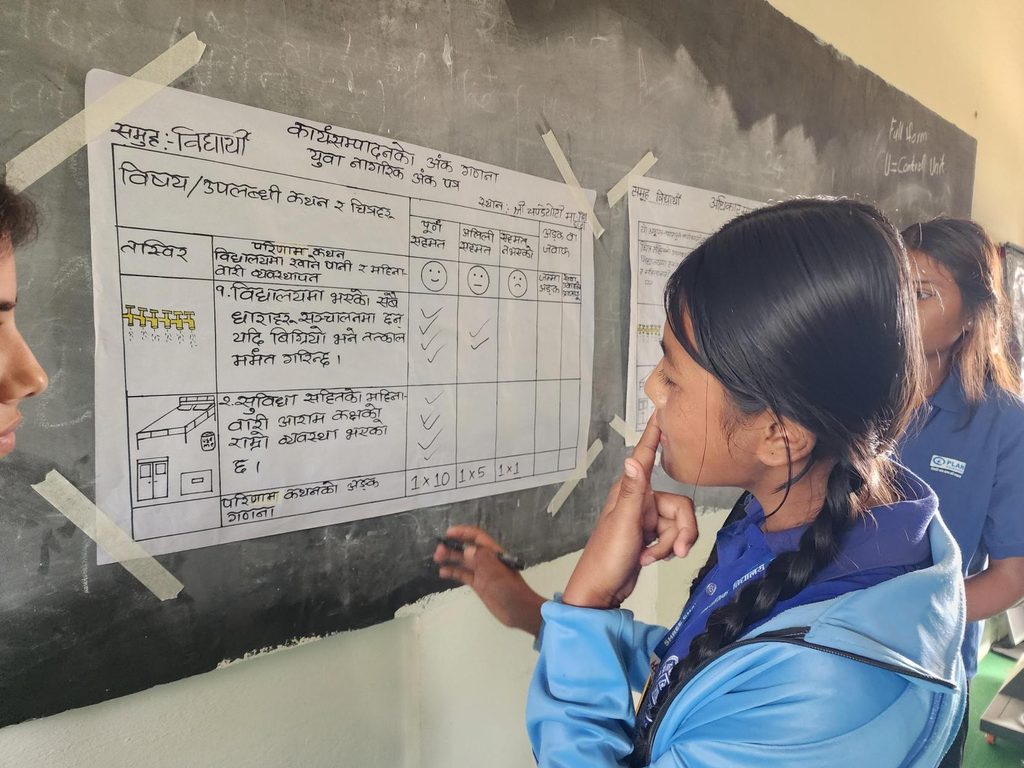
“Earlier, I thought change was only for adults to make. Now, I know we can create change ourselves,” says Manisha.
Manisha, once a shy student, now uses her mobile journalism skills to highlight issues in schools and health centers. She published her first news story under her own byline, documenting community challenges and bringing them to the attention of local authorities. Her reporting has led to tangible changes, such as restored computer labs and improved menstrual hygiene facilities in schools.
“Earlier, I thought change was only for adults to make. Now, I know we can create change ourselves.”
Manisha, young volunteer
“With a smartphone and the right skills, we are making authorities listen and act,” shares Sristika.
Seeing waste dumped into the Gwang River, Sristika captured photos and shared them on social media, prompting the ward office to investigate and implement better waste management practices. Through the SLAS Project, she has learned how to combine digital activism with community dialogue, ensuring youth voices are central in environmental discussions.
“With a smartphone and the right skills, we are making authorities listen and act.”
Sristika, youth volunteer
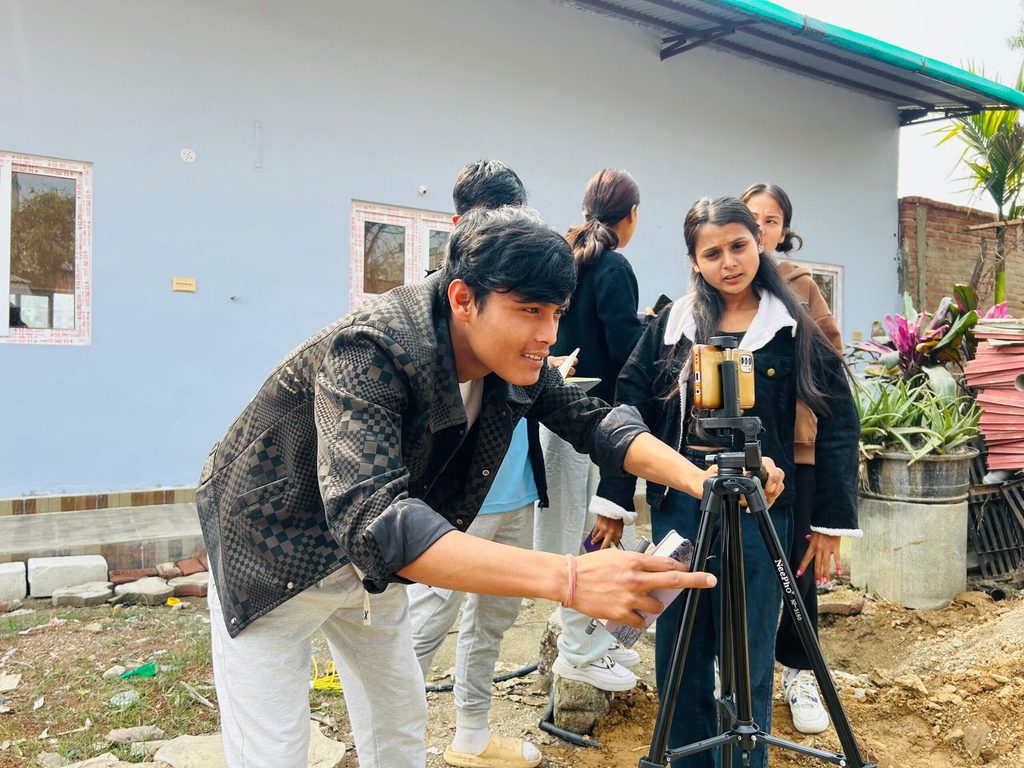
“A photo can be powerful. It can move people to act for change,” expresses Bipana.
Bipana’s simple photo of a young boy mending shoes led to discussions at the municipality level about child labour and education. Her participation in SLAS digital journalism training turned her passion for photography into an advocacy tool, proving that youth voices, when amplified, can influence community and policy-level decisions.
“A photo can be powerful. It can move people to act for change.”
Bipana, youth volunteer
These stories are just a few examples of how 66 youth volunteers under the SLAS Project are leading community assessments, advocating for policy changes, and ensuring accountability in service delivery in Sindhuli. They have:
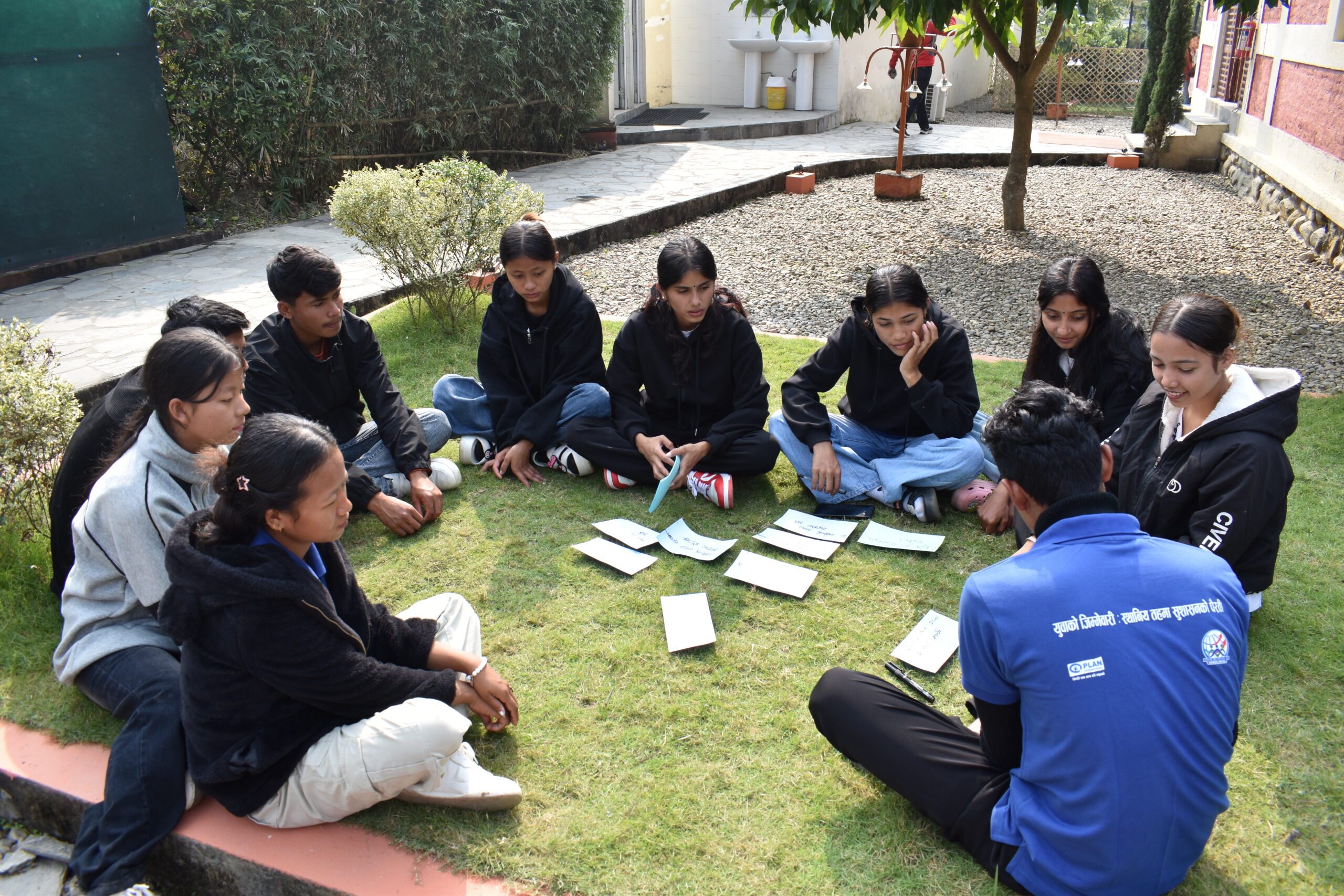
At Plan International Nepal, we are proud to stand alongside these youth leaders as they reimagine governance and transform communities from within. Their stories showcase that when young people are trusted with responsibility and equipped with the right tools, they lead change that benefits all.
Young people are building a future where youth voices drive accountability, one story, one action, and one community at a time.